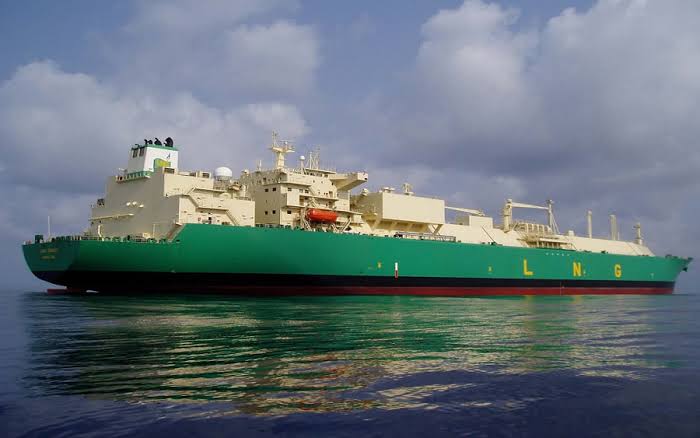Global demand for Liquified Natural Gas (LNG) is likely to prove stronger than expected and the current pipeline of projects appears not to be enough to keep up, according to one of Japan’s top traders of the fuel.
“Announced projects in the world still won’t make up for the supply needed when considering the energy transition that will take several decades,” said president of Japanese trading house Mitsui & Co., Kenichi Hori, in an interview in Tokyo.
Hori echoed major exporters including Chevron and Shell in saying gas will play a long-term role in the energy transition. His comments come as competition for LNG has intensified after Russia’s invasion of Ukraine, with Europe seeking to curb its dependency on Moscow for gas and emerging nations targeting long-term deals to avoid future shortages.
Mitsui, and Japan’s other major trading houses are heavily involved in oil, gas and coal. Warren Buffett’s Berkshire Hathaway earlier this year raised its stake in the firms, after they saw a surge in profits on the back of high commodity prices and the weak yen.
Countries and companies are seeing LNG as a cleaner fossil fuel that can lower emissions, but supply is expected to be tight until around 2026, when new projects are scheduled to start operating. Global LNG demand is forecast to increase by 3.4 per cent annually over 2022-2026 to reach 444 million metric tons, according to BloombergNEF.
Ensuring diversity of supply sources is likely to prove crucial for energy security in Japan, according to Hori. We have projects in the US, Middle East and Africa, he said.
When asked about whether Mitsui is interested in signing a contract with Qatar, which has been seeking buyers from its huge output expansion, Hori said, the Middle Eastern nation is an important source of LNG as Japan pursues further diversification.
Along with gas and LNG, it’s important for Mitsui to have “several pathways” for the energy transition, including renewable energy, ammonia and hydrogen, Hori said.
The company recently announced a 960 billion yen ($6.4 billion) investment in an offshore wind project off Taiwan’s east coast, and is exploring opportunities in e-methanol, a synthetic ingredient made from hydrogen and carbon emissions.
All these projects are going to shape the future of our portfolio that is transitioning from a traditional energy business to a low-carbon-intensive era, he said.
Meanwhile, oil futures continue to plunge after Israel pounds Gaza but fell further on Monday on a report the U.S. and Venezuela could soon reach a deal to ease sanctions on Venezuela if a presidential election date is set, while traders see the Israel-Hamas conflict not affecting crude supplies in the short term.
Brent futures were down 59 cents, or 0.67 per cent at $90.27 a barrel while the U.S. West Texas Intermediate (WTI) crude fell by 0.29 cents, or 0.37 per cent to $87.30 a barrel.
The U.S. and Venezuelan governments were getting ready to sign a pact in Barbados as early as on Tuesday to ease U.S. sanctions on Venezuela’s oil industry in return for a competitive, monitored presidential election in Venezuela next year, according to media reports.
Easing sanctions on Venezuela’s oil industry could result in increased oil supply.
Traders were optimistic the war between Israel and Palestinian Islamist Hamas would remain confined to Gaza.
It’s more of the same on Monday in terms of the conflict in the Middle East being contained from affecting crude oil supplies, said partner with Again Capital LLC, John Kilduff.
Both oil benchmarks had climbed nearly 6 per cent on Friday, taking Brent 7.5 per cent higher on the week and WTI up 5.9 per cent. Israeli air strikes on Gaza intensified on Monday, after diplomatic efforts to arrange a ceasefire in southern Gaza failed.
The White House said it hopes the Rafah crossing at the Gaza-Egypt border could open for a few hours on Monday to allow some people to leave ahead of Israel’s suspected ground offensive.
U.S. Secretary of State Antony Blinken returned to Israel on Monday, where he discussed humanitarian aid with Israeli prime minister, Benjamin Netanyahu.
Russia has also entered the diplomatic fray, with president Vladimir Putin set to hold talks with Iran, Israel, Palestinians, Syria and Egypt. Heightened tensions in the Middle East may have compounded other risk factors to push prices higher last week.
The United States last week imposed the first sanctions on owners of tankers carrying Russian oil priced above the G7’s price cap of $60 a barrel, an effort to close loopholes in the mechanism designed to deprive Moscow of revenue for its energy sales.
“The sudden decision on tightening up of sanctions on ship owners carrying Russian crude over the $60/barrel limit by the US started to niggle and so did the Russian/Saudi meeting concluded by President Putin stating that OPEC+ were achieving ‘stability’,” PVM analyst John Evans said on price rises at the end of last week.











